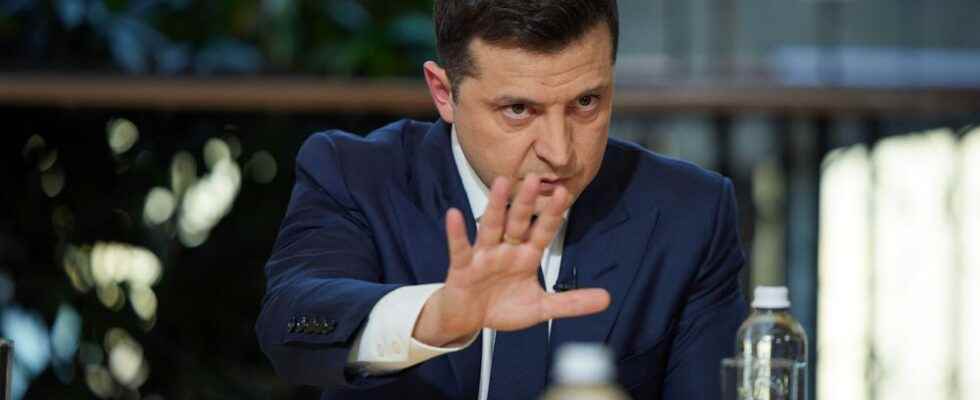Without even knowing the outcome of the bombardments in the Donbass, Vladimir Putin can already boast of a victory, which was not the least of his objectives: the master of the Kremlin has become the center of attention of a good part of the planet. Under the pretext that NATO would represent a “threat” for Russia and by demanding the unacceptable (reverting to the security architecture of 1997, before the accession of the countries of Central and Eastern Europe to the military alliance led by the United States), the Russian president recalled to his good memory the Americans, who had had the audacity to turn away from him to concentrate their strategic interests towards China. He signaled in passing to the European Union that he had the means to impose an armed conflict on its doors, while despising it to the point of not inviting it to its table to negotiate. He hangs on each other to his whims, his reversals, his troop movements as to the least of his words. Keeping the entire Western world in suspense and concern is a matter of enjoyment for an autocrat who, after twenty years of power concentrated around his single person, having eliminated opponents, counter-powers and contradictors, becomes by force things drunk on his own and out of control. Westerners know it: with him, whatever the rationale and the consequences, the magnitude of what he has to lose will not deter him from trying to obtain what he has to gain.
“What does Putin want?” “What is he playing?” “Is he pretending?” The media, the chancelleries, the staffs, the commercial cafés of the four corners of the planet have been going in circles on these questions for more than two months, faced with a toreador president who waves his muleta, disposes 175,000 men at the border , pretended to withdraw them, replaced them, ordered maneuvers in Belarus and magnanimously allowed the first bombardments by the separatists to take place on the front line. He anticipated the pretexts for his offensive by describing the treatment of the Russian-speaking minorities of Donbass as “genocide”. Like the bull in the arena, the partners of the Atlantic Alliance are exhausted staying day and night on the alert and planting their horns in the empty sheet around the master of the game. At the head of a large an economically mediocre military power, Putin succeeded in destabilizing the United States and its European allies by attacking their weak points. Do they pride themselves on respecting international law and the integrity of borders? It denies the sovereignty of a State on the European continent. They are attached to peace on their soil? It forces them to accept the possibility of war on their doorstep or, even worse, a permanent state of war. Russian suspense is Chinese torture.
Ukrainian President Volodymyr Zelensky, here in Kiev, November 26, 2021.
afp.com/Handout
At the time of completing this column, which should be updated hourly, a warning siren sounded over Donetsk, capital of one of the two self-proclaimed pro-Russian Republics of Donbass. Its leader, Denis Pushilin, called on his fellow citizens to take refuge in Russia, in anticipation of a Ukrainian military attack. Vladimir Putin was able to note, sorry, a “deterioration of the situation”, confirming the scenario of the “false incident” (“false flag”) pushing Kiev to the fault and then justifying an invasion by Russia. The Ukrainian President, Volodymyr Zelensky, had been able to resist provocations with exemplary discipline.
From the point of view of Western reason, doesn’t the Russian president have everything to lose by this military offensive in Donbass, already acquired de facto by militias in the pay of Russia? Putin has already obtained the prospect of a negotiation on security in Europe, the reaffirmation by Germany and France that they will oppose, as in 2008, Ukraine’s accession to NATO, and the assurance that the United States would not engage militarily in Ukraine. It’s–it was a lot. He is now exposed to the draconian sanctions of which the Westerners have warned him. But, in the hierarchy of its priorities, it is the forced Russification of Ukraine, odiously tempted by Western-style freedom, which prevails. The economic, social and health consequences on his people are not the primary concern of an autocrat: it is his advantage and his strength over leaders subject to the rules of democracy.
